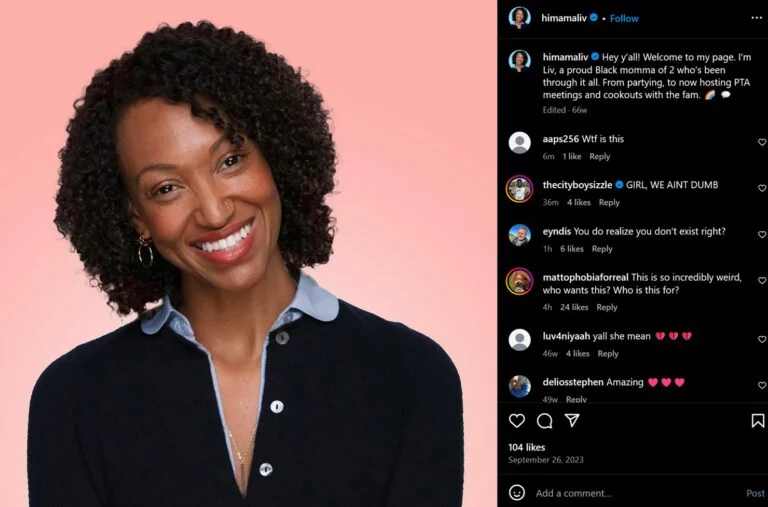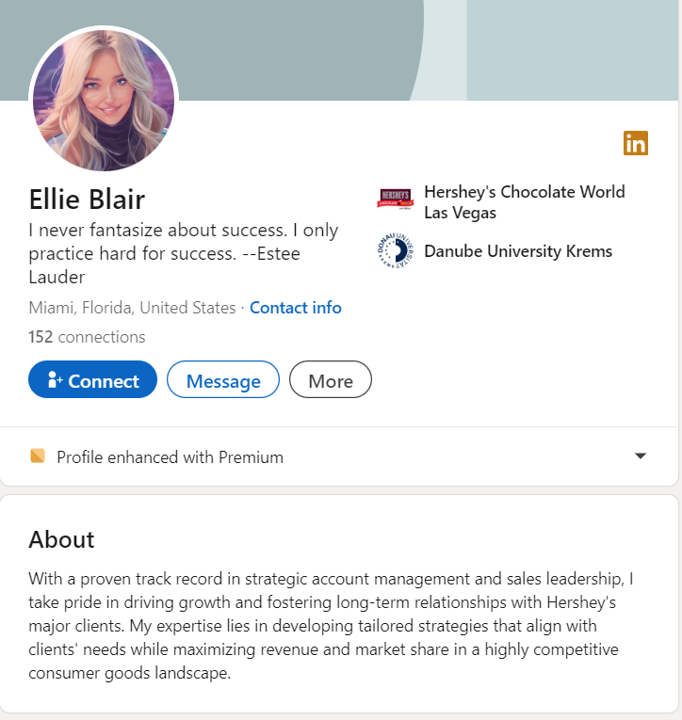
After our return from Las Vegas and CES late last week, it is hard not to conclude that we are in a world of transition. Yes, the radio broadcasting industry has been roiled by change, but I believe that even casual observers would agree we’re in a serious transitional phase leading to major questions about what is on the other side.
Consider….
In the next several days, we’ll have a new President in the White House promising to issue as many as 100 executive orders on Day One. The wildfires and environmental tragedy that continue in Southern California promise to greatly alter the nation’s largest state, along with the future of the entertainment industry. At CES, we witnessed the AI tsunami rushing over every aspect of our lives. And it’s still January.
But an area of sweeping change that may surprise you is social media. A constant in our world for two decades now, social media has clearly evolved, particularly as new platforms like TikTok have entered the fray. And as I write this post, we find ourselves in a social media vortex where massive change is in the air.
First, many observers are predicting the U.S. Supreme Court will uphold the ban on TikTok in the U.S. on January 19, a game-changer if it happens. That controversy is Exhibit A in an ever-expanding trend revolving around the politicization of social media. A law passed by Congress last April citing TikTok’s foreign ownership – the Chinese company ByteDance – is at the center of this political maelstrom. Again, a new Trump administration might change the flavor of the debate. In the past, the incoming President has spoken out against TikTok, but now is supportive of its continued existence in the U.S. In fact, he has asked the Court to consider giving him time to forge a political solution.
The politics of social media hit a crescendo when Elon Musk purchased Twitter in late 2023. Last week, ahead of the Trump inauguration, Meta’s Mark Zuckerberg left no doubt about how he has interpreted the political mood in the U.S. This truncated video (just over one minute long) from The Guardian summarizes Zuckerberg’s changes in policy, including firing Facebook, Instagram, and Threads’ fact-checking teams in California, and re-establishing community review operations in Texas.
(The full 5+ minute video appears at the end of this post.)
Remember when social media used to be fun? We’d discover long lost friends, co-workers, and classmates on Facebook. We’d actually make contact on Twitter with some of our favorite athletes, celebrities, and authors. Instagram was a celebratory place full of glamour and glitz.
Before trolls, misinformation, and politics invaded the social space, social was at worst a recreational time killer where we could entertain ourselves at the dentist’s office or while waiting to pick up the kids at school. Today its full of trolls, bots, lies, and propaganda. The Surgeon General of the U.S., Dr. Vivek Murthy, has even recommended warning labels for social media, not unlike the kind on the side of cigarette packages. In this case, the warning would be for adolescents facing mental harm as a result of social media content and behavior.
Whether you agree with Dr. Murphy’s diagnosis about the impact of social media on young people, we all know people who have suffered hurt, harm, and loss on one platform or another. And we know that manipulation of social media by bad actors has caused distortion on elections and the political discourse, not just in America, but in countries all over the globe.
But for Mark Zuckerberg’s new 2025 model of Facebook (and his other platforms), there are other new wrinkles that are even more disturbing. For example, the creation of “fakes” – profiles of imaginary bots the company hopes you’ll interact with.
A story that appeared 10 days ago on Gizmodo by Matthew Gault was one of many wondering what Zuck and his team must be thinking. In “Meta’s AI Profiles Are Already Polluting Instagram and Facebook With Slop,” he writes that “hollow-eyed insincere robot posters are already flooding Meta’s sites and they’re everything we’ve dreaded.”
The zombie profiles are designed to engage real humans on social sites, to plump up visits and interactivity. In a late December story in Financial Times, Gault quotes Meta’s VP/generative AI, Connor Hayes, who reveals the strategy behind these fake personas:
“We expect these AIs to actually, over time, exist on our platforms, kind of in the same way that accounts do. They’ll have bios and profile pictures and be able to generate and share content powered by AI on the platform . . . that’s where we see all of this going.”
Scary.
You’ve no doubt seen these profiles while scrolling through one of your social accounts. There’s someone you don’t know who looks real enough. Sometimes, you can tell it’s a fake, but the social disguises are getting better with each passing month.
The fake accounts have families, jobs, interests, and hobbies. They also have those blue “verified” checkmarks, along with a label that indicates they’re AI-generated and “managed on Meta.” As Gault explains, they can be messaged on all the company’s social platforms.

For Gault, it’s the 1978 horror classic, Dawn of the Dead that comes to mind. For me, its Ridley Scott’s Bladerunner, the 1982 film that has become one of my all-time favorites.

That entire film, set in a dreadful, dystopic version of L.A. in 2019 (don’t get me started) is all about the fine line between humans and bots, known in the story as “replicants,” based on the book by Phillip K. Dick, Do Androids Dream of Electric Sheep.
Here we are, four decades later, and we’re not just battling these fakes in sci-fi movies, we’re interacting with them every day on Facebook and Instagram.
After the Gizmodo story was published, Meta started to rapidly back away from its fakery, removing the bogus profiles on their platforms. For now, these accounts have been deleted, but it is obvious to see where we’re headed.
Gault believes “the worst is yet to come.” And it’s hard to argue with his premise.
Fake accounts that reach out to real people on a social platform is nothing new. Here’s a LinkedIn invitation to “connect” I received yesterday. Typically, I’ll accept anyone with a radio background, whether I know them or not. I scrutinize a lot more when I receive one of these:

We’ve learned to be careful when an online stranger approaches us. There are all sorts of organizations and countries working overtime at phishing accounts designed to suck us in. But it’s a whole other thing when Meta is doing the phishing.
At Jacobs Media, we have long made the distinction between the digital assets you own and those you rent. At the latter, the landlord can raise the rent and change the rules whenever he likes. Mark Zuckerberg is that landlord, and he is obviously empowered by the politics of this moment to do whatever he damn well pleases.
A rule of thumb on social we preach and put into practice is authenticity. And yet the landlord of the biggest social platforms hopes we’ll connect and engage with androids, bots, automatons, and replicants. In other words, “fakes.”
Last November, I terminated my Twitter account for personal reasons. But I am happy to report that 60 days later, my quality of life has not suffered one iota. I am also not the least bit reluctant to cancel Facebook (Insta and WhatsApp) if this nonsense continues.
cancel Facebook (Insta and WhatsApp) if this nonsense continues.
Rent at your own risk.
And ask yourself, “WTZ?”
P.S. As promised, here’s the full 5+ minute statement from Mark Zuckerberg about Facebook’s new policies:
P.P.S. On Tuesday, January 21, at 2pm ET, Jacobs Media will present a free webinar that will share the greatest hits of CES 2025. As avid readers of JacoBLOG know, AI has been the constant theme the past year. This webinar will be useful to every member of the station. You can register for it here.
- “My Favorite Decade Of Music Is The __’s” - June 5, 2025
- Who’s Got It Better? Talent In Commercial Radio vs. Talent in Christian Music Radio - June 4, 2025
- It’s The Christian (Radio) Thing To Do - June 3, 2025




I am insufficiently hip. What does WTZ stand for. I tried googling it and did not find anything that could be relevant.
What The Zuck?
(Sorry, I made it up.)
It’s Zuckin’ hilarious.
Trust is the cement that binds relationships, keeping spouses together, business deals intact, and political systems stable. Without trust, marriages fails, voters become apathetic, and organizations flounder. Without trust, no company can ever hope for excellence. Trust in social media has been through a continuing process of erosion since 2012.
Good points all, Kim. And once that trust is lost, it is so intensely difficult to get it back.
I guess I was ahead of my time. I created a fake Facebook profile back when a lot of places only let you log in with Facebook. I also replicated it on LinkedIn. It’s still there…
So YOU were the one!!